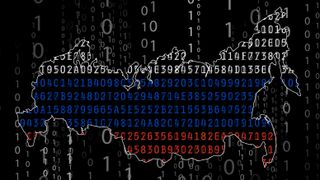Russia VPN: Kremlin claims no blocking plans
Security software providers and citizens breathed a sigh of relief on Tuesday, February 6, 2024, when the Kremlin announced no further plans to block VPNs in Russia “yet.”
Russian authorities have long fought against the use of these circumvention tools, as they allow citizens to circumvent strict government-imposed online restrictions. However, these efforts have not always produced the desired results. For example, VPN downloads in Russia have increased dramatically since the start of the conflict in Ukraine.
The announcement comes after months of speculation about the new measures, which are expected to target software that gives Russians access to banned content. However, experts still argue that using VPN may be at risk.
Russia VPN censorship
According to Stanislav Shakirov, CTO of Russian digital rights group Roskomsvoboda, the new announcement is not necessarily about blocking VPN services, as some VPNs, he said, have been blocked for a long time.
“From March 1, 2024, information about ways to bypass blocks, about tools, the popularization of VPNs, etc. will be blocked,” he told me.
This doesn’t come as a total surprise either.
Did you know?
Russian Senator Artem Sheikin, the deputy chairman of the Council for the Development of the Digital Economy, first announced the plan for yet another VPN censorship campaign in October last year. Subsequently, the head of the government initiative Safe Internet League, Yekaterina Mizulina, confirmed that the plan would “very likely” take place the day before the Kremlin issued the denial –reported the Moscow Times.
Short for Virtual Private Network, a VPN is security software that encrypts Internet connections to provide better anonymity and privacy online. It also spoofs your IP address to trick the sites you visit into thinking you are browsing entirely from another country and allows access to geo-restricted content. This latter ability is precisely why many countries around the world are boosting their VPN censorship tactics.
Last April, the Kremlin launched a new disinformation campaign to discourage citizens from using these tools. This was followed by further new regulations that, among other things, ban the publication of information on ways to circumvent content blocking. That’s exactly what Shakirov thinks the new rules against VPNs are about.
He said: “I assume that in accordance with the Information Removal Act, the authorities will start blocking sites that contain information related to VPN. Warnings will be issued to all sites that have relevant articles, reviews and advertisements contain.”
The founder of one of these precious resources himself:Privacy accelerator—Shakirov expects that any website and online service that refuses to remove such information will be blocked.
“We expect that this will affect not only VPN providers, but also media and public organizations, including Roskomsvoboda,” he added. “It will also impact aggregator websites used by VPN providers to receive traffic.”
What is certain is that while Roskomnadzor, the infamous country’s telecom regulator, has been feeding its centralized internet blacklist since 2012 with online content deemed illegal, citizens have been turning to secure VPN solutions in droves – especially after the increase in censorship after the start of the invasion of Ukraine. .
According to Roskomsvoboda, a non-governmental organization focused on protecting the digital rights of internet users in Russia, more than 2,300 websites have become inaccessible in Russia since the country’s invasion of Ukraine on February 24.April 17, 2022
Many of the censored URLs and domain names are actually official VPN websites that rejected the government’s new requirements.
This meant that providers had to find alternative ways to reach customers. They also invested in strengthening their infrastructure with obfuscation technology and similar censorship-resistant features to circumvent the Kremlin’s crackdown. All these efforts may be obsolete very soon.
Shakirov expects that all information surrounding security software will move from the Internet to Telegram and will instead pass between citizens by word of mouth.
He said: “This situation will affect the way people learn about and buy VPN. If this information is currently publicly available, it will become a little more difficult to obtain this type of information in the future.”
We test and assess VPN services in the context of legal recreational use. For example: 1. Accessing a service from another country (subject to the terms and conditions of that service). 2. Protect your online security and strengthen your online privacy abroad. We do not support or tolerate the illegal or malicious use of VPN services. Consuming pirated, paid for content is not endorsed or condoned by Future Publishing.

